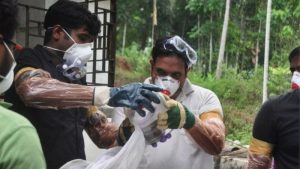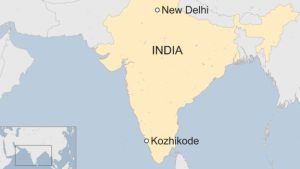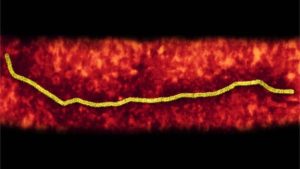
Nipah Virus (NiV)
A vaccine has not yet been found to prevent the spread of this deadly animal-to-human virus.

A vaccine has not yet been found to prevent the spread of this deadly virus from animals to humans.
Three people have been diagnosed with the virus in the past two weeks, and the results of tests on six others are due to be released on Monday.
Another twenty-five people have been hospitalized with symptoms caused by ingesting the virus.
A vaccine has not yet been found to prevent the spread of this deadly animal-to-human virus.
Bat carcasses were found in a house where the deceased people lived

The World Health Organization has identified Nipah virus as the “highest” of the ten deadly diseases at risk of spreading.
Also know this information:
- Viruses are most dangerous in the morning
- The doctor who saved children’s lives with a bottle of shampoo
- 3000 cases of dengue in the first 17 days of this year
Kerala Health Secretary Rajeev Sadanandan mentioned that a nurse who treated a person infected with the Nipah virus has also died of the same disease.
Do you agree to allow Twitter content?
This article contains content provided by Twitter. Because they use cookies and other technologies, we ask for your permission before loading any of them. You may want to read the Twitter Cookie Policy and Privacy Policy before allowing it. Select ‘Accept and Continue’ to view this content.
“Since the medical treatment available to infected people is minimal, the focus is on taking measures to prevent the spread of the virus,” he added.

The virus is known to be transmitted to humans mainly from fruit-eating bats.
Health authorities say that some mangoes eaten by bats were found in a house where three people died due to infection with the virus.
What is this Nipah virus?

- The re-emerging Nipah virus (NiV) is transmitted from animals to humans, and is being spread by fruit-eating bats.
- First identified in 1999, the virus spread widely among farmers and people who cared for pigs in Malaysia and Singapore.
- At that time, nearly 300 people fell ill due to this virus, of which 100 died. Malaysia’s meat industry suffered heavy losses as millions of pigs were killed to prevent the spread of the virus.
- Nipah can be prevented by avoiding sick pigs and bats in areas where the virus is endemic, and by not drinking coconut water while in the fruit.
- Symptoms include fever, headache, fainting, shortness of breath and mental confusion. A person may fall into a coma within 24 to 48 hours after showing these symptoms.
- Symptoms include fever, headache, dizziness, shortness of breath and mental confusion. A person may fall into a coma within 24 to 48 hours of showing these symptoms.
It has been identified that ‘Nipa virus’ is mainly transmitted from bats to humans
